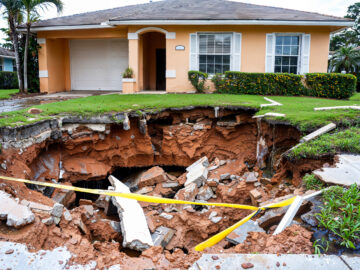Your Guide to Buying Home Insurance in Florida

Six Key Steps to Finding the Best Coverage for Your Home.
Shopping for homeowners insurance in Florida is crucial to protect your home and family from the unique risks of the Sunshine State. Here are six essential steps to help you secure the best home insurance coverage.
Before you start shopping, take the time to understand how to read a home insurance policy before you start the shopping process. Familiarize yourself with terms like replacement cost coverage and actual cash value coverage. Knowing that your policy can restore your home to its original pre-loss condition is essential. If building codes have changed, ensure you have Ordinance and Law coverage to avoid out-of-pocket expenses. Don’t hesitate to ask questions when speaking to an agent or insurance company representative—they’re there to help you find the best coverage for your Florida home.
While a low cost might be tempting, all insurance policies—and all insurance carriers—are not alike. Shop around and compare insurance companies, taking into account discounts, exclusions, coverage factors, technology, customer service, and the company’s Financial Stability Rating. Financial stability means being able to pay claims for multiple storms. Security First has one of the most comprehensive reinsurance programs in Florida. This comprehensive approach will help you find a reliable policy that meets your needs.
Tip: Your insurance carrier may have been “A” rated when you purchased your policy, but financial stability can change over time. You should conduct an annual review of your insurer’s financial stability. A good time to do this is June 1st, when most Florida home insurance companies have purchased reinsurance for the upcoming hurricane season. An inadequate reinsurance program could be a sign that the company has poorly managed its growth and might not be able to pay claims in the event of a major storm.
Dwelling coverage (Coverage A) protects the physical structure of your home. Ensure this coverage is sufficient to rebuild your house if necessary if damaged as the result of a covered peril. The cost to rebuild may differ from your home’s real estate value.
Tip: The cost to rebuild your home may not be the same as its real estate value. In fact, that amount might be higher than your home’s market value, especially when you consider that it has to be rebuilt using current, more stringent building codes and costlier materials. If you can’t determine how much dwelling coverage you need, contact an agent for assistance.
Review your home insurance policy to ensure it covers your valuable items adequately. For high-value or sentimental items, consider purchasing Scheduled Personal Property coverage. Some insurance companies may require documentation and appraisals for these items. Because most people don’t read their home insurance policy until after a loss has occurred, they’re often surprised to find out that their valuable vinyl or stamp collection, engagement ring, or family heirloom surpasses their coverage limits. This extra step ensures your prized possessions are well-protected.
Your deductible is your share of the cost to replace lost or damaged items. Opting for a higher deductible can lower your premium, but it means higher out-of-pocket expenses in case of a loss. If you choose a higher deductible, it’s wise to create an emergency fund for this purpose. In Florida and many coastal states, homeowners have two deductibles: one for hurricane damages and another for all other covered perils. Understanding these deductibles will help you make an informed decision.
Did you know?: Homeowners in Florida and many coastal states have two deductibles: one that’s specifically for damages from hurricanes and a second that applies to all other covered perils. While the “all other perils” deductible is usually a flat fee (often $500 or $1,000), the hurricane deductible is a percentage (generally at least 2 percent) of the Coverage A amount. For instance, if your Coverage A amount is $200,000, you’ll be responsible for the first $4,000 worth of damage to your home before your insurance company will pay for any repairs.
Knowing what your policy doesn’t cover is as important as knowing what it does. In Florida, where hurricanes and storm surges are common, it’s vital to know that flood insurance isn’t included in standard home insurance. Purchase a standalone flood insurance policy to ensure you’re covered in the event of a flood. Your agent can help you understand other exclusions and discuss options to address them.
The best consumer is an informed consumer, and hopefully, the information above will help you feel more prepared to shop for insurance.
Related posts: How to Read Your Homeowners Insurance Policy and Save Money on Your Home Insurance Policy
Also: Get an instant home insurance Florida quote with the insurance coverage you need.
 Florida Lifestyle
Florida Lifestyle
Discover what causes sinkholes in Florida, how to spot warning signs, and how homeowners insurance can protect your property.
 Florida Lifestyle
Florida Lifestyle
A “30 year roof” is a manufacture’s marketing term, not an insurance guarantee. Discover why roof age, not roof warranty really matters for your Florida home.
 Florida Lifestyle
Florida Lifestyle
These tips for managing the rising cost of homeowners insurance in Florida can help you lower your insurance premiums.